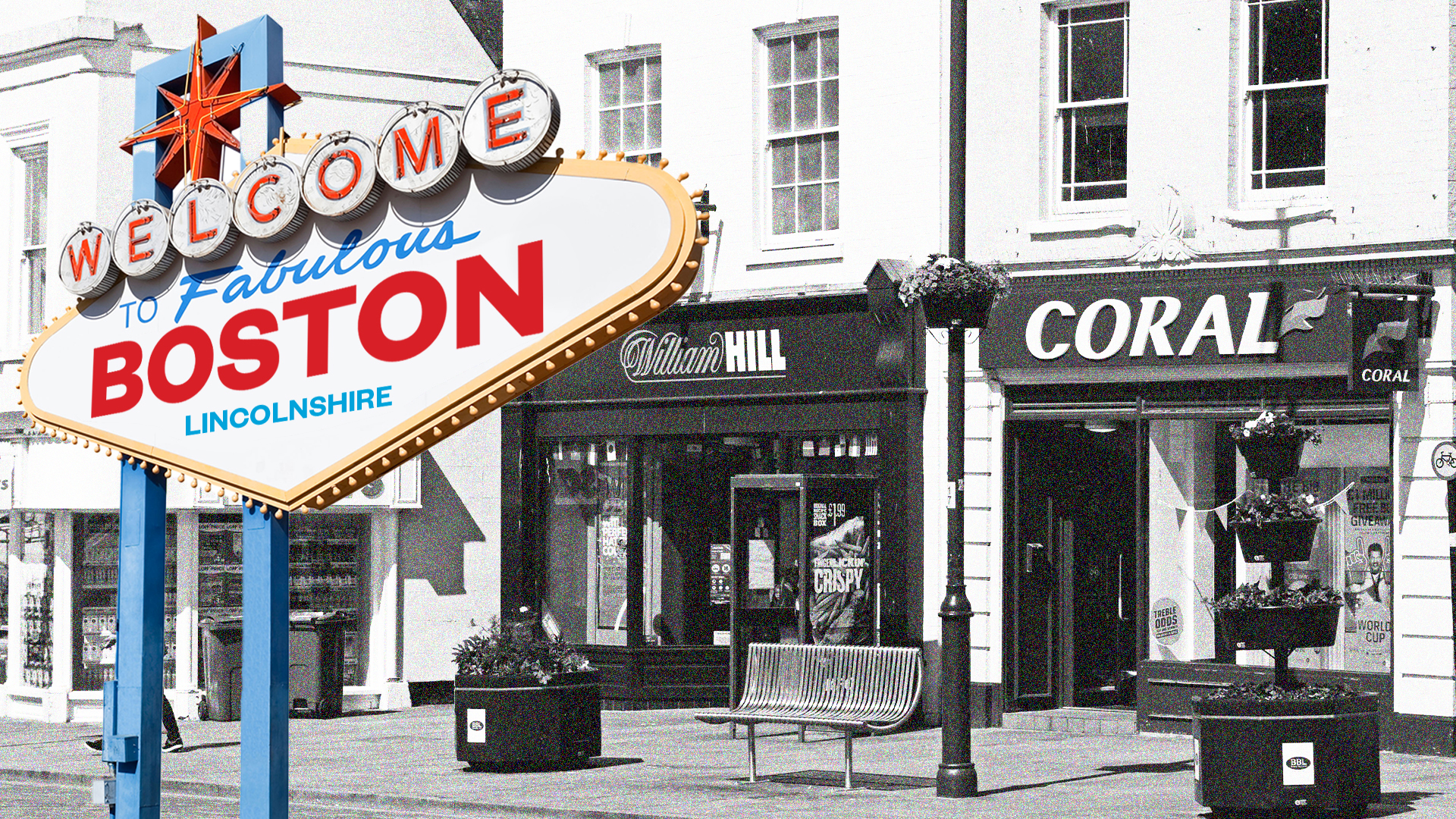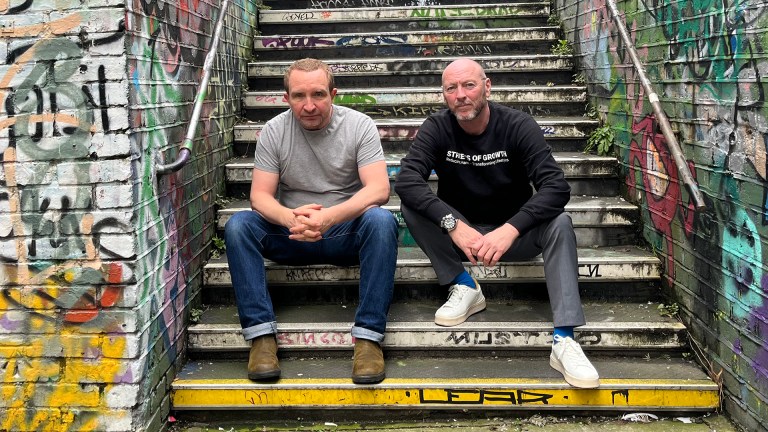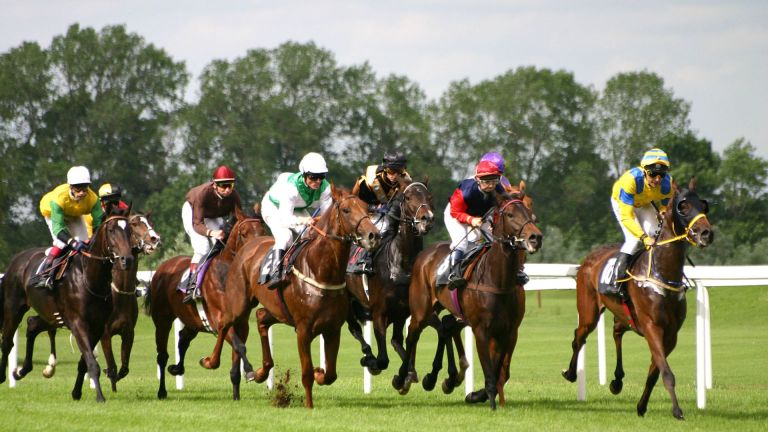Workers in Boston are some of the lowest paid in Britain, earning a median wage of £458 a week – well under the national average of £532 and 17th lowest out of the UK’s roughly 400 local authorities. Around 5 per cent of the town’s population claim unemployment benefits.
When the Brexit referendum came around, Boston was the most enthusiastic about leaving the EU, with 75 per cent in favour of cutting ties. Almost seven years later, new polling suggests it’s the only place in the UK which doesn’t regret Brexit.
Boston’s first 24-hour business crept through unnoticed, said Welberry, a former casino worker. From there, arcades and betting shops kept springing up.
She got involved with the campaign after losing a family friend to gambling. Her fellow campaigners work in food banks, community centres, and have all seen the impact of gambling.
“We have all been touched by it in some way,” she said.
Your support changes lives. Find out how you can help us help more people by signing up for a subscription
As research, Welberry went into one of the shops and saw the clientele was clear. Factory workers, in their overalls, coming from their shifts. Many worked in a roll-on roll-off pattern, sharing a bed with somebody in shifts. They came to the gambling shop for a place to be.
“The council is weak in our opinion,” she said. “They should have fought harder to stop these premises creeping into the town”.
“Gambling shops give the wrong impression of the area.”
It is, of course, not just an issue that affects Boston. Betting has exploded in the UK in the past 30 years. In 1991-92, the Treasury received £1.05 billion in betting and gaming duty receipts. By 2021-22 this figure was £3.07bn. Had 1992’s figure increased with inflation, it would only be £2.28bn. The industry as a whole made £14.1bn from April 2021 to March 2022.
There were, as of March 31, 2022, 6,219 gambling shops in Great Britain. Across the country, the number is on a slight downward trend – but in some towns there is only one direction of travel.
All this is happening while Boston lays big plans for regeneration. It has just received £14.8 million from the government’s levelling up fund, which will “repurpose and revitalise” the town centre, as well as a £21.9m Boston Town Deal.
Gambling shops create jobs, the companies argue – one is touted as bringing 12 jobs to the area. But to Welberry, it’s a grim choice for an area in need of revitalising: “Is the choice between an empty shop or a gambling establishment?”
And for any town looking to regenerate, there’s a danger that prime locations are already taken up by betting shops. You’ll often see grand old bank buildings housing bookies because until the mid 2010s planning classifications meant they didn’t need to apply for permission to convert them. Unsurprisingly, the companies also gravitate to poorer areas, with research in 2021 finding poorer areas are 10 times more likely to have a bookmakers than richer areas.
The Erdington constituency of Birmingham has a similar problem, with gambling shops feasting where levelling up has left the area behind, according to MP Paulette Hamilton.
“Our high street desperately needs investment, not another betting shop,” she told The Big Issue. “Our levelling up fund bid would have brought investment and transformed the area into a destination again, which is exactly what Erdington needs. But sadly, we did not receive a single penny from the Tory government’s £2.1bn fund whilst the prime minister’s own constituency – one of the most affluent – has received £19m.”
Erdington is among the 10 per cent most deprived communities, and had been forced to take measures to protect against the anti-social behaviour brought on by the concentration of betting shops.
“We’ve jumped through every hoop that has been asked of us, but levelling up is just a Tory slogan and it’s clear that they don’t care about areas like Erdington,” she said.
“When gambling bosses believe they stand a chance of securing an eighth bookies on our high street by appealing to the government, you can tell whose side they’re on and it is not the side of local people.”
However, in Boston, the tide appears to be turning. Boston Borough Council rejected the Clarks application, by Merkur Slots, in July. The company appealed, but then pulled it on January 18.
Residents had been flooding the council’s planning portal with objections. “Boston needs to pull itself up from poverty not drag itself down,” read one.
A spokesperson for Merkur did not explain why the application was pulled when contacted by The Big Issue, saying only: “We have unfortunately taken the difficult decision to withdraw our planning appeal, despite initially hoping to return the vacant unit back to commercial use and transform it into a thriving high street attraction that drives footfall, creates jobs and makes a positive contribution to the local economy.”
The Trespass application, from Luxury Leisure, was ‘called in’ to be reviewed by a planning committee after objections were raised by a councillor.
Yvonne Stevens, a councillor for Boston’s Trinity Ward, wrote: “Does Boston want to be known/seen as encouraging addiction of any sort? Addicts cannot walk away.”
She added: “The public is constantly being advised by central gov. and all leading authorities that gambling addiction is on the increase in the UK particularly within the lower income section of the community.”
Then, again without explanation, Luxury Leisure withdrew its application on Tuesday morning.
Boston Council has refused to explain its policy on approving gambling shops in the town. Other councils have brought in “cumulative impact” areas to stop the spread of licensed premises in a problem area.
Get the latest news and insight into how the Big Issue magazine is made by signing up for the Inside Big Issue newsletter
But it’s hard to get away from gambling in society. Ads are ubiquitous; they’re on TV, on the front of Premier League shirts, on pitchside hoardings during matches, and on sports sites and apps.
Gambling, and gambling advertising, is intrinsically harmful to society’s most vulnerable, said professor Elizabeth Goyder of Sheffield University. Shop fronts act as a very obvious form of advertising not just for in store offers but promotions on the bookmaker’s website or app. It’s cheaper than paying for ads across the town centre.
While the overall gambling industry contracted during Covid, remote betting bucked the trend. In the year to March 2022, revenue from that part of the sector increased by 12.4 per cent to £6.4bn.
Goyder, who has just published a paper examining the link between advertising and gambling harms, told The Big Issue: “The more you’re exposed to the advertising, the more you are likely to be at risk of gambling and therefore gambling at harmful levels.
“We also know that young people, children, young adults, people who already are gambling more than they can afford, and people who have financial difficulties, are even more likely to be influenced by the advertising”.
Restrictions on gambling advertising could not only reduce the overall harm, but also reduce the way gambling feeds existing inequalities, Goyder said.
“It’s the nature of gambling as a product that it will be more harmful to people who we have a duty to protect – the young, people who are poor, people who have poor mental health,” she said.









